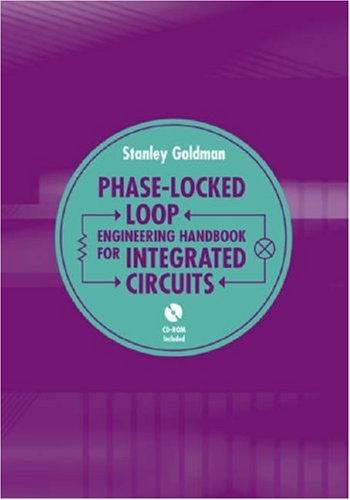Measuring Computer Performance: A Practitioner's Guide(平裝)
David J. Lilja
- 出版商: Cambridge
- 出版日期: 2005-09-08
- 售價: $1,300
- 貴賓價: 9.8 折 $1,274
- 語言: 英文
- 頁數: 280
- 裝訂: Paperback
- ISBN: 0521646707
- ISBN-13: 9780521646703
已絕版
買這商品的人也買了...
-
 C 程式設計藝術 (C How to Program, 4/e)
C 程式設計藝術 (C How to Program, 4/e)$780$702 -
 深入淺出設計模式 (Head First Design Patterns)
深入淺出設計模式 (Head First Design Patterns)$880$695 -
 深入淺出 Java 程式設計, 2/e (Head First Java, 2/e)
深入淺出 Java 程式設計, 2/e (Head First Java, 2/e)$880$695 -
 CSS 功能索引式參考手冊
CSS 功能索引式參考手冊$390$332 -
 深入淺出 Hibernate
深入淺出 Hibernate$650$507 -
 駭客攻防技術擂臺
駭客攻防技術擂臺$520$442 -
 ASP.NET 2.0 深度剖析範例集
ASP.NET 2.0 深度剖析範例集$650$507 -
 Linux 驅動程式, 3/e (Linux Device Drivers, 3/e)
Linux 驅動程式, 3/e (Linux Device Drivers, 3/e)$980$774 -
 A Friendly Introduction to Number Theory, 3/e (IE-Paperback)
A Friendly Introduction to Number Theory, 3/e (IE-Paperback)$700$686 -
 Linux 核心詳解, 3/e (Understanding the Linux Kernel, 3/e)
Linux 核心詳解, 3/e (Understanding the Linux Kernel, 3/e)$1,200$948 -
 自己動手寫作業系統
自己動手寫作業系統$520$411 -
 Fedora Core 6 Linux 實務應用(附DVD)
Fedora Core 6 Linux 實務應用(附DVD)$650$553 -
 Web Layout 設計的美學
Web Layout 設計的美學$580$493 -
 Linux 網路原理 (Understanding Linux Network Internals)
Linux 網路原理 (Understanding Linux Network Internals)$1,200$948 -
 C++ Primer, 4/e (中文版)
C++ Primer, 4/e (中文版)$990$891 -
 自學手冊 2008 電腦選購、組裝、升級、調校
自學手冊 2008 電腦選購、組裝、升級、調校$380$300 -
 程式之美-微軟技術面試心得
程式之美-微軟技術面試心得$490$416 -
 30 天打造 OS!作業系統自作入門
30 天打造 OS!作業系統自作入門$780$663 -
 輕鬆學‧馬上會-Microsoft Office 2007 實用祕技
輕鬆學‧馬上會-Microsoft Office 2007 實用祕技$520$442 -
 Illustrator 完美創意設計
Illustrator 完美創意設計$680$169 -
 鳥哥的 Linux 私房菜-基礎學習篇, 3/e
鳥哥的 Linux 私房菜-基礎學習篇, 3/e$820$697 -
 Google!Android 2 手機應用程式設計入門, 3/e
Google!Android 2 手機應用程式設計入門, 3/e$530$419 -
 Google Android SDK 開發範例大全 2
Google Android SDK 開發範例大全 2$890$756 -
 iPhone 程式設計範例經典-讓您設計出專業級的 iPhone 應用程式 (iPhone for Programmers: An App-Driven Approach)
iPhone 程式設計範例經典-讓您設計出專業級的 iPhone 應用程式 (iPhone for Programmers: An App-Driven Approach)$480$408 -
 深入淺出 Android 系統原理及開發要點
深入淺出 Android 系統原理及開發要點$450$351
相關主題
商品描述
Description:
Measuring Computer Performance sets out the fundamental techniques used in analyzing and understanding the performance of computer systems. The emphasis is on practical methods of measurement, simulation, and analytical modeling. David Lilja discusses performance metrics and provides detailed coverage of the strategies used in benchmark programs. In addition to intuitive explanations of key statistical tools, he describes the general "design of experiments" technique and shows how the maximum amount of information can be obtained with minimum effort. Features include appendices listing common probability distributions and statistical tables and a glossary of important technical terms.
Table of Contents:
1. Introduction; 2. Metrics of performance; 3. Average performance and variability; 4. Errors in experimental measurements; 5. Comparing alternatives; 6. Measurement tools and techniques; 7. Benchmark programs; 8. Linear regression models; 9. Design of experiments; 10. Simulation and random number generation; 11. Queueing analysis; Glossary; Appendices.











